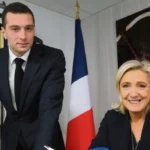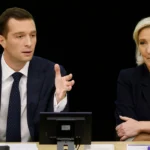Amidst the QatarGate Fiasco, which has already shackled the politics of Europe, A detailed report on the political opinions of Members of European parliaments has given birth to new controversies. The dossier disclosed by Doubt comprises information from Belgian secret services and law enforcement agencies. The document disclosed that the privacy and immunity of Members of the European Parliament were not only breached but the institution itself. This whole scenario suggests that the activities were done by police intervening in the parliament proceedings. Thus, the Belgian Police entered the premises of the parliament without uniforms and monitored the activities of MEPs.This revelation also demands clarifications and actions from the President of the European Parliament, who serves as the speaker.
It also suggests that Belgium, as the capital of Europe, is not safe to hold host nation status, as it jeopardizes the privacy of MEPs and puts parliamentary immunity at risk. This situation will also have implications for other European institutions based in Belgium.
The concrete evidence that exposed the illegal activities of the Police is the report submitted to then-judge Michel Claise on 14 NOV 2022. Later, the Judge also distanced himself from the investigation as he was doubtful, and concerns arose about his conduct. The report includes shocking information gathered by police from the “Spinelli” Room of the European Parliament. There was a discussion by the subcommittee on human rights discussing the World Cup. The Police observed the whole proceedings of this meeting. So here is the question: does the police have the right to monitor the activities of parliament proceedings? Who allowed them to do this?
The most shocking part of this story is that the foreign delegation was also present; Ali Bin Samikh Al Marri, the minister of Labour of Qatar, attended. The presence of the police raises concerns, as it is possible that the activities of the Labour minister were also observed. Most foreign diplomats enjoy immunities in other nations, especially when observing parliamentary proceedings. However, diplomatic immunity is violated in this case, and Brussels is not considered safe for diplomats.
According to European Union law expert Giuseppe Paccione, the entry of police into parliamentary premises is illegal and violates the status of Parliament. He stated that European institutions, including the European Parliament, enjoy complete diplomatic immunity, and police have no right to enter without uniforms and observe parliamentary proceedings. Therefore, the presence of any law enforcement agencies breaches the freedom of European parliamentarians and violates the treaty and functioning of the European Union (TFEU) that ensures the internal affairs of European institutions.
Furthermore, the report disclosed that the police were present for 1 hour and 45 minutes, observing the proceedings involving Belgian MEP Maria Arena. The report highlights a conflict of opinions regarding assistance to Qatar in undertaking reforms, with Marc Tarabella advocating for it while others emphasized the importance of respecting workers’ rights. Additionally, the police observed MEP Arena’s control over discussion times, favoring those aligned with encouraging Qatar.
Moreover, the police described the movements of a key suspect in the Qatargate investigation, Antonio Panzeri, and his assistant, Francesco Giogi. The report allegedly alleges corruption involving Panzeri and Giogi but includes a sitting MEP, Maria Arena. This development breaches the immunity and parliamentary prerogatives of MEPs.
This scenario paints a grim picture of the European Parliament, considered the epitome of democracy. The Parliament deemed a sacred institution, witnessed a violation of its statutes and the immunity of MEPs. This narrative calls for a thorough investigation and decisive actions from higher authorities. The President and Vice President of the European Parliament should take stringent action against the Belgian authorities. Furthermore, it raises concerns about the safety of Members of the European Parliament in Belgium, the European capital.






